I saw Yvonne weep during her live stream, and rather than feeling pleased, I experienced an unusual weight in my chest. She was seated in fr...
I saw Yvonne weep during her live stream, and rather than feeling pleased, I experienced an unusual weight in my chest. She was seated in front of thousands of followers, tears flowing down her face, admitting that she had "lost herself seeking approval."

My phone kept vibrating constantly. Friends kept sending me videos, murmuring that perhaps this was my time for retribution. But retribution didn't feel like this. It didn't feel like seeing the girl I once considered my sister break down in front of strangers.
I still recall the first instance she mentioned me — how proud I felt when she referred to me as "the lazy friend who pushed her to work harder." At that moment, I thought it was just a joke. I chuckled and even shared it. However, the laughter faded as her page gained popularity, and my life turned into her narrative.
Now, several months later, she was falling apart on camera, confessing that she had imposed her fears onto me. I wanted to look the other way, but something inside me murmured:You must see this through.

When I first encountered Yvonne, she wasn't an influencer. She was simply my fitness companion — the only person who grasped what it felt like to desire more from life but feel lost on how to begin.
We arranged to meet at a modest gym close to Kileleshwa, one that carried a slight scent of disinfectant and old perspiration. I had recently signed up because I was fed up with feeling sluggish from years spent sitting at a desk. Yvonne was already there, her enthusiasm being contagious. She possessed a laugh that echoed throughout the room, the kind that could make even the most grumpy trainer break into a smile.
We connected effortlessly. Following our workouts, we'd sit on the sidewalk outside with madafu, discussing everything — ex-partners, aspirations, careers, and how both of us longed to regain confidence in our bodies.
I explained to her how my previous relationship had made me feel insecure about my body. She shared with me that her ex had once described her as "average." That term continued to trouble her.
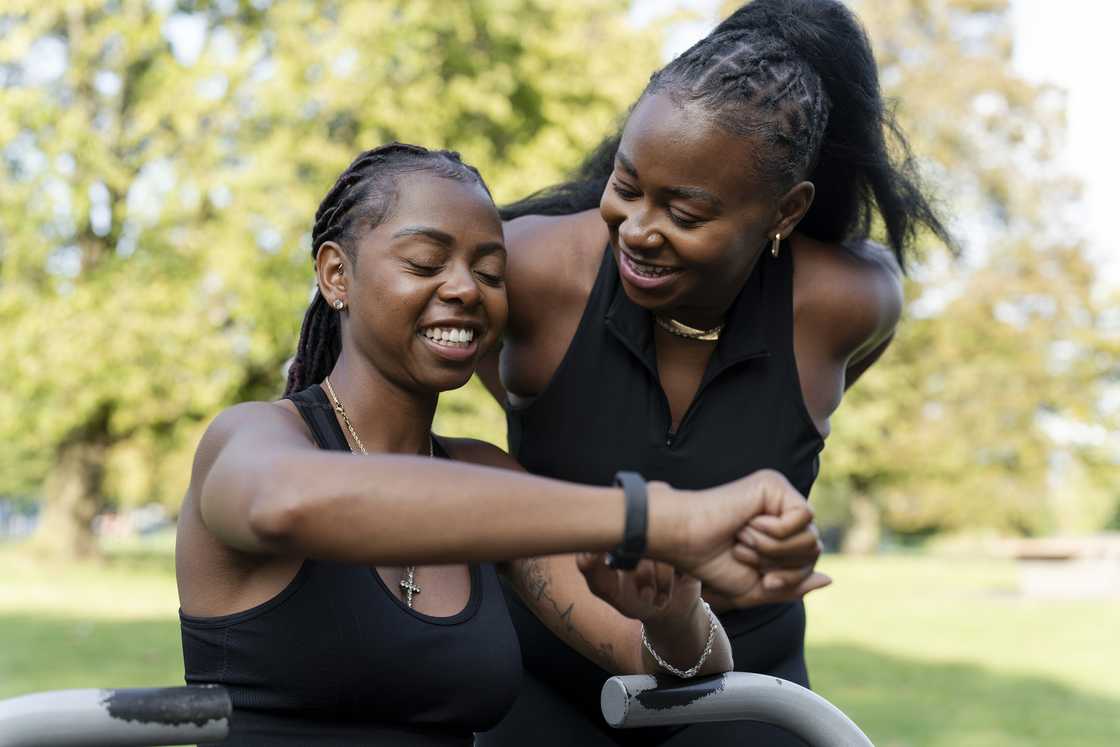
Soon, our time at the gym turned into something special. We encouraged each other through every squat, every treadmill run, and every tough day. Yvonne began filming short clips to keep us motivated—mainly moments of us laughing or groaning after exercises.
"Only memories," she would say, waving her phone with a smile.
However, with the passage of time, those "memories" started to receive captions.
‘Consistency over comfort.’
‘No lazy friends allowed.’
It started off as a lighthearted thing. I didn't give it much thought. If anything, I was impressed by how dedicated she was getting. Yvonne had a good sense of style. She would bring her ring light, prop her phone on dumbbells, and film everything.
Soon, her fan base expanded. It went from a few hundred to thousands. She began receiving free leggings, protein shakes, and partnerships with gyms. I was truly delighted for her.
I'd say, "Girl, you're going viral, weuh!" and she'd smile, responding, "We're going viral. You're my ride-or-die, remember?"

However, gradually, I started to observe how her tone shifted when she talked about our online journey. She became more polished, more theatrical. Her captions were no longer simply about exercise — they evolved into subtle narratives about "discipline versus excuses," "winners versus quitters." Even though she never referred to my name explicitly, everyone understood who she was talking about.
Individuals at the fitness center started making fun of me.
Whoa, lazy friend, you're here today, huh!
They expressed it through humor, yet I experienced the pain every single time.
At home, I'd browse her posts, attempting to convince myself that it was simply a promotional tactic. Maybe that's what influencers did — they stretched the truth for more interaction. After all, she was still my friend. She continued to send me voice messages every night, and always inquired when I skipped the gym.
Still, a subtle unease started to emerge.
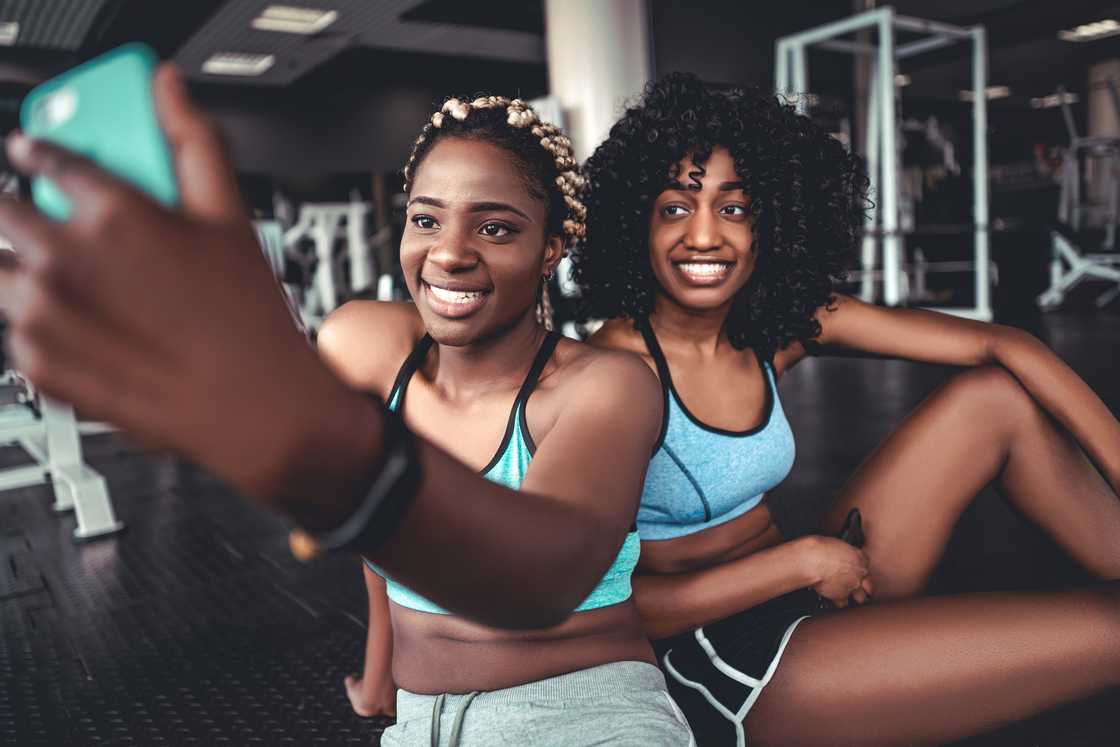
Occasionally, she would request "real talk" videos—us discussing challenges related to fitness and staying motivated. I would be honest, sharing my self-doubt, emotional eating habits, and gradual progress. She would listen, smile, and then give me a hug. However, later on, I would come across a post that used my very same words, rephrased into a moral lesson for her followers.
Some individuals claim they desire transformation, yet their behavior indicates contentment. Avoid becoming that friend.
Every time I witnessed something similar, I felt unseen, as if she had stolen my heart and transformed it into social media tags.
Nevertheless, I didn't face her. I didn't wish to come across as the jealous companion. I convinced myself, Perhaps this is what development entails. Perhaps she's simply feeling motivated. However, as her popularity increased, a change occurred between us, and I gradually understood that our friendship was turning into part of her content plan.
The first genuine sign of trouble occurred on a Sunday afternoon at the gym.
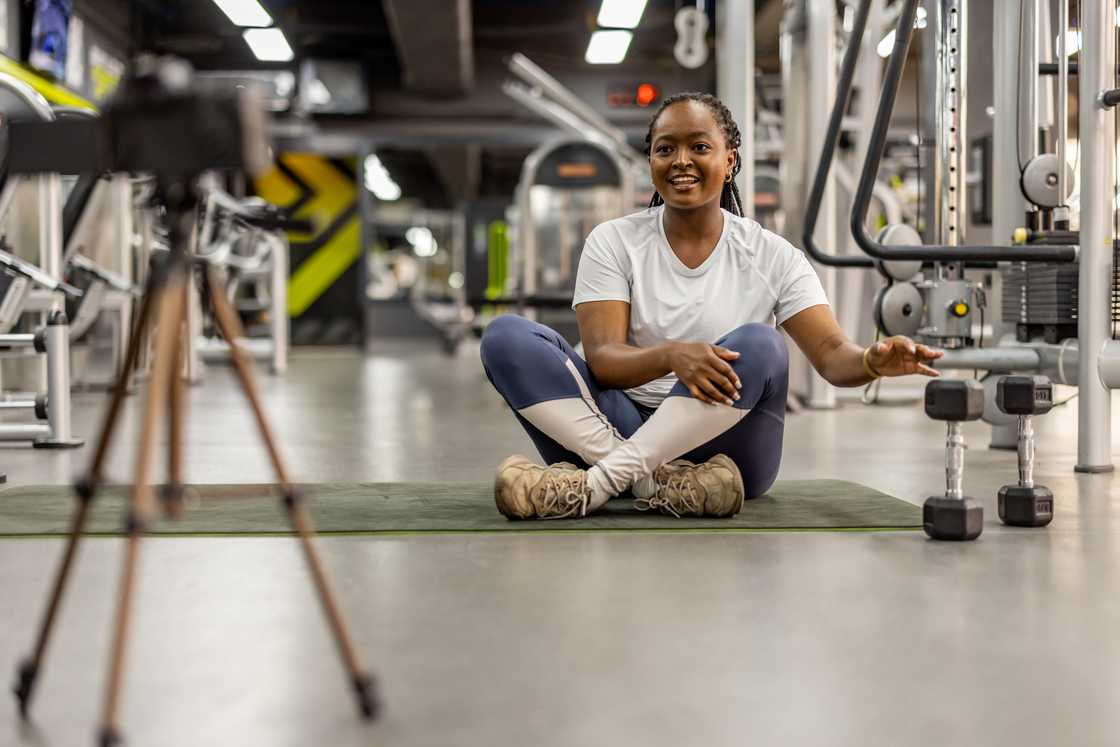
We were filming a new "Bestie Fitness Challenge," and Yvonne asked us to perform burpees while laughing for the camera. I was extremely tired that day. My period had just begun, and my cramps felt like knives rotating inside my abdomen.
I whispered to her, "Aki, let's avoid filming today. I'm not feeling well."
But she offered me that controlled influencer grin—the one she flashed when the camera was rolling.
"None of your excuses, Queen," she said with a light tone, then turned her phone on herself.
I observed her change. Her voice became more powerful, her stance became more upright, and her face radiated self-assurance.
Look, everyone? This is what dedication means. Some individuals desire outcomes but refuse to put in the required effort. Even my closest friend attempted to pull out today!
The words struck me as if drenched in icy water.
She chuckled, anticipating my participation. However, I remained still, managing a slight smile while she continued to converse with her followers, oblivious to the warmth spreading in my chest.
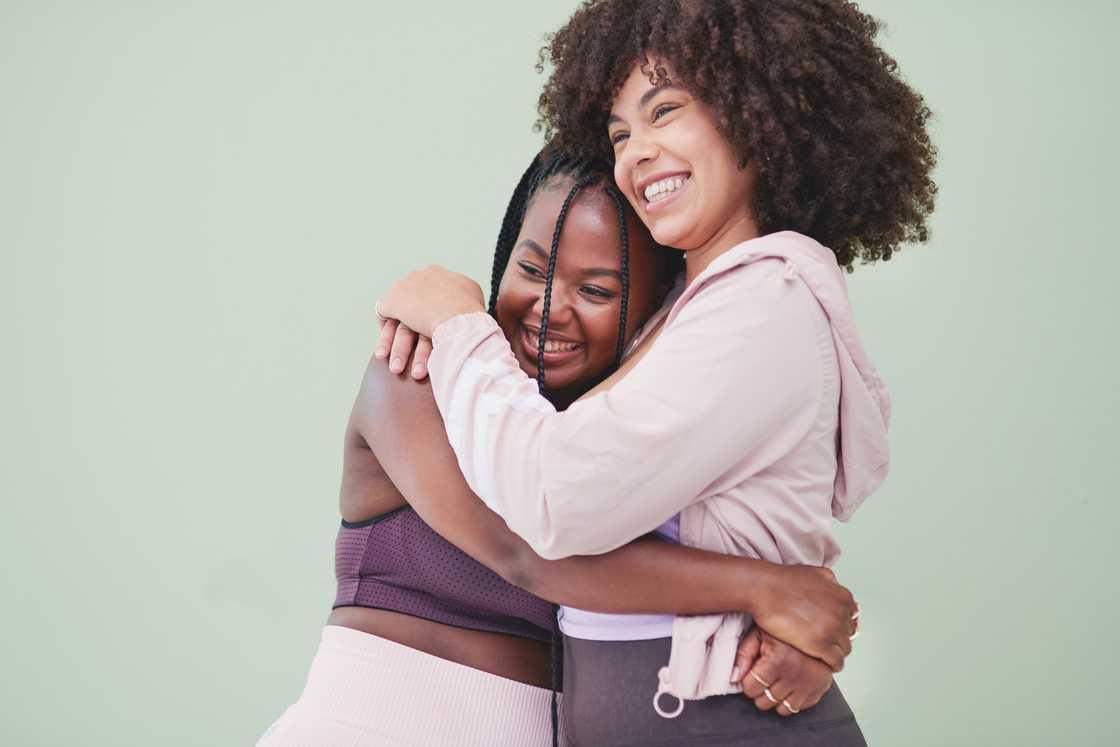
After the recording finished, she embraced me and remarked, "You understand it's just material, don't you? Don't take it too seriously."
But it didn't seem like "just content." It felt like a violation.
In the following weeks, her posts grew more courageous. She revealed "behind-the-scenes" accounts of our friendship—describing how she was "carrying" me on her back, and how some individuals "drag you down without realizing it." She would capture me in moments of laughter, sadness, and difficulty, crafting stories that portrayed me as the imperfect character in her journey to success.
Initially, I attempted to converse with her.
One evening at her residence in Westlands, as she was working on a video, I remarked, "Yvonne, I don't enjoy being seen as the lazy one online. It's humiliating. People make fun of me wherever I go."
She glanced up for a moment, her ring light shining behind her.
Ann, people appreciate genuine expression. You make the content easy to connect with. Everyone can see themselves in you.
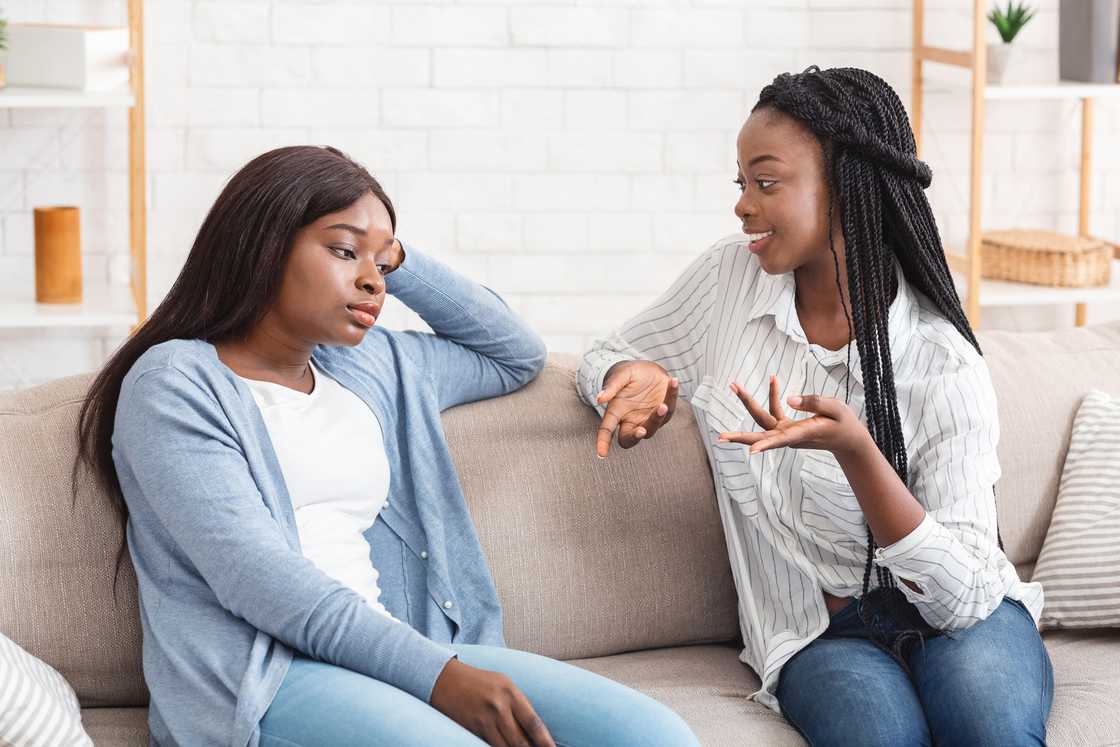
Indeed," I murmured, "but they're mocking me, not connecting with me.
She exhaled deeply, twirling in her chair. "So what do you want me to do? Stop being genuine? My page focuses on development. You're a part of my journey."
Her words hurt more than I had anticipated. That night, I left her apartment with a tight throat and a heavy chest. For the first time since we became friends, I felt like an object in the background.
Then came the critical moment — a video that became popular online.
Within it, she shared with her followers the story of a "friend" who constantly made excuses and was about to quit the gym. She described this friend as "too emotional, too dependent," and mentioned that "sometimes you have to leave people behind in order to progress."
The forum became chaotic. Viewers commended her for her "authenticity." A few others remarked, "Cut that friend loose, she's a burden."

When I watched it, I felt as if all the air had been knocked out of me. My name wasn't brought up, but everyone was aware. Our common friends shared the video with question marks. Even my mother viewed it after someone sent it to her via WhatsApp.
That evening, I messaged Yvonne: You've crossed the line.
She responded a few minutes later: If the shoe is not suitable, don't put it on.
I gazed at my screen, trembling. My hands were shaking. The girl who had once comforted me during heartbreak had now transformed my suffering into a joke.
After that, I ceased visiting the gym. I disabled her stories. I stopped following her. However, she became aware.
Two weeks later, she shared another video: "Sometimes those who stop applauding you were never truly happy for you from the start."
That's when I understood — she was no longer speaking to me.
She was talking about me.
Our bond had transformed into her act, and I was powerless over the storyline.

It occurred on a Wednesday night — the day all things fell apart.
I remained quiet for months, hiding my pain as Yvonne's popularity grew. Each week, she shared a new video that turned my life into her inspirational stories. And every time, people applauded her, hailing her as "the most genuine influencer in Kenya."
But one evening, after watching her newest video, something inside me snapped.
In the video, she portrayed a "toxic friend scenario." The narrative involved a "jealous gym companion" who constantly sought attention but couldn't cope with achievement. She broke down on camera and stated, "I've learned that some friends resent your success."
The tears were not genuine. I recognized that expression — it was her acting face. The very same one she employed when companies sought authenticity.
My heart raced while I scanned the messages. Individuals labeled me as resentful, unmotivated, and insincere. One person even sent me a private message stating, "You're the reason she nearly gave up. Embarrassing."
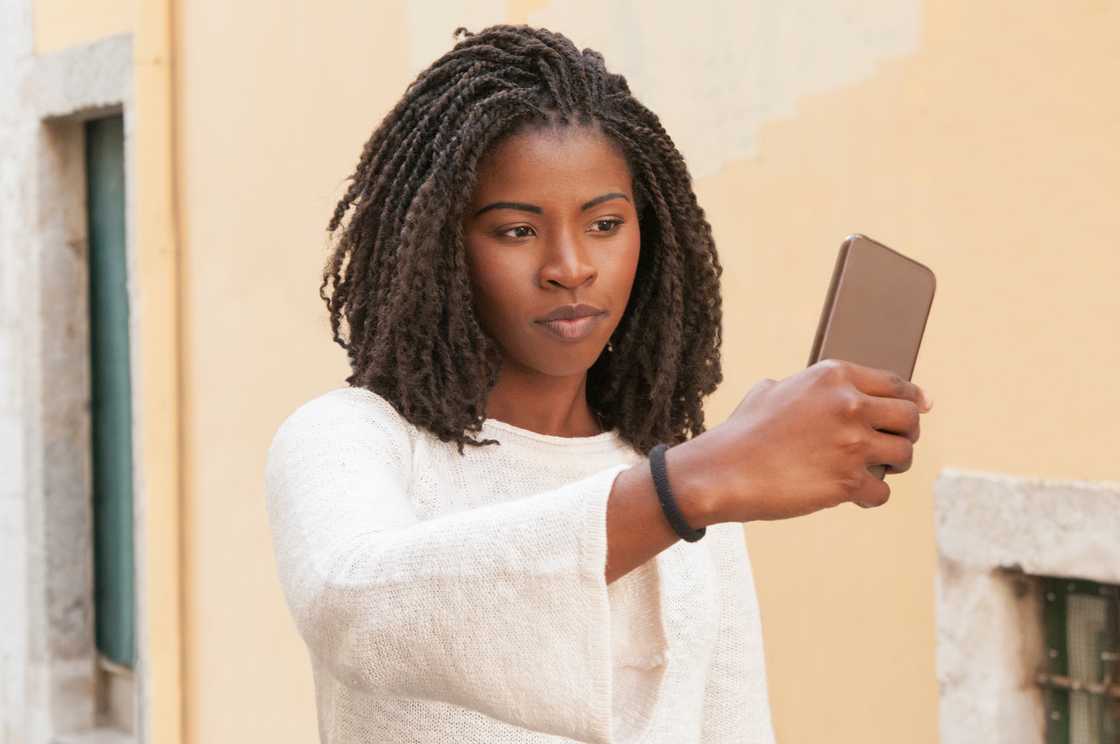
That evening, I opened TikTok for the first time in several months. I was sitting in my tiny living room, my hands trembling, and pressed record. I didn't apply any filters. I wasn't wearing any makeup. I simply stared directly into the camera and said,
Hello, I'm Ann—the 'lazy friend' everyone seems to be discussing.
At first, my voice shook, but the truth gave me strength.
I was present when Yvonne began. We created that page together. Each caption about me wasn't made up — it was my actual life, my challenges, the trust she transformed into material. I never despised her. I simply longed for my friend back.
I spoke for almost ten minutes — not due to vengeance, but because I had to regain my voice.
By morning, my video had gone viral. It received thousands of views. There were hundreds of comments. Some people stood by me, while others labeled it "drama." But I didn't mind. For the first time, I felt acknowledged.
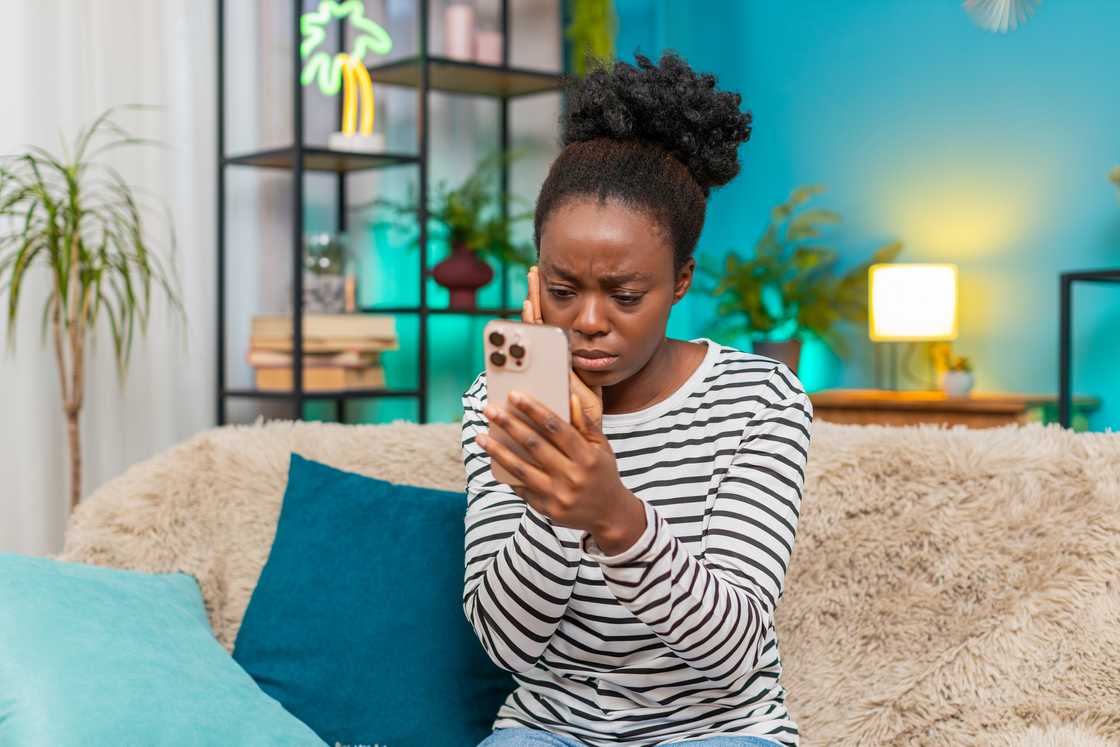
Yvonne's reply arrived in a matter of hours.
She went live — furious, crying, and on the defensive.
I can't believe she would do this to me," she exclaimed. "Every word I said was honest. If she's been harmed, perhaps she should have tried harder.
Her supporters chose sides. Our shared acquaintances became involved in heated debates. The online world transformed our friendship into a public display.
For several days, I was unable to go outside without hearing whispers. My workplace also turned into a stressful environment. People stared at me with inquisitive eyes, as if I had become a celebrity in a story I hadn't agreed to be part of.
Shortly after, a few weeks later, all activity ceased. Yvonne stopped sharing updates. Her previously active page became empty. No exercise routines. No comments. Only quiet.
Several months went by before I received word from her again.
One afternoon, as I was browsing Instagram, I saw a photo of her appearing exhausted, without any makeup, and with puffy eyes. The caption said:
Occasionally, the individual who causes you the greatest pain is the one who revealed your true self.
It wasn't labeled, but I understood she was referring to me.
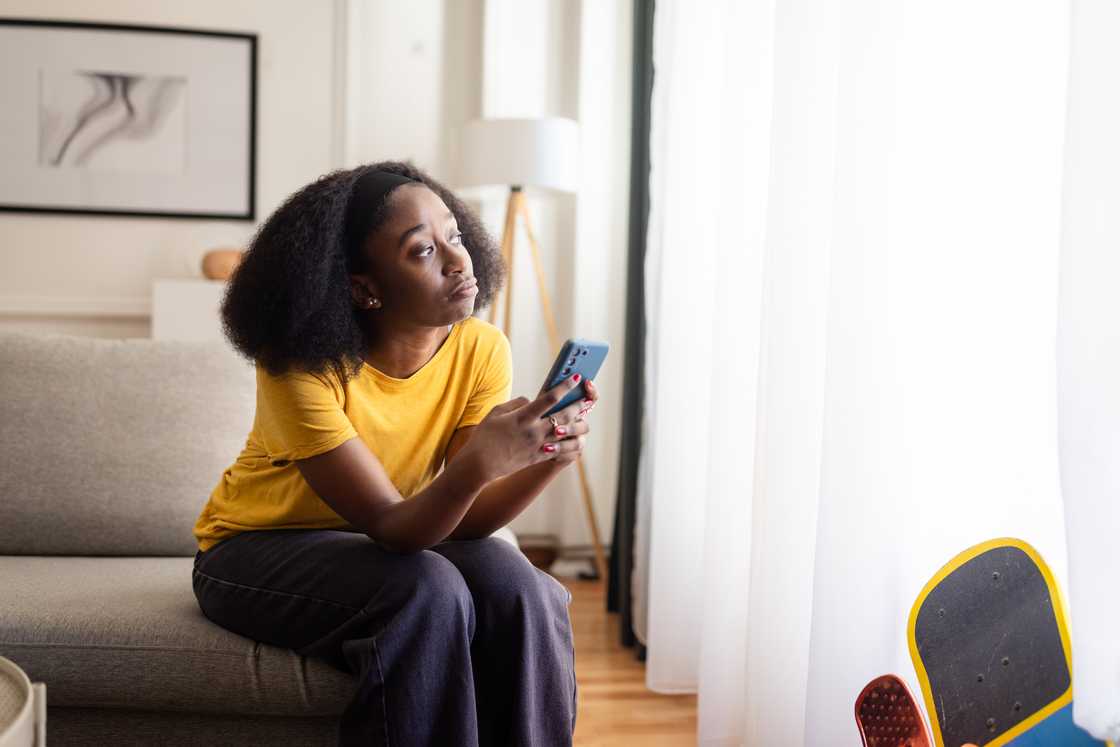
Later in the week, a person who was familiar with her shared with me that Yvonne had been dealing with anxiety and exhaustion. It seems she had been experiencing significant stress to maintain the appearance of a "perfect life." At that moment, I realized that all those critical comments she made about me, along with the captions that ridiculed my unpredictability and self-doubt, weren't actually directed at me.
They were her mirrors. Her struggles. Her hatred of herself disguised as self-assurance.
For the first time, I didn't experience anger. I felt sorrow instead.
Perhaps she hadn't taken advantage of me with ill intent.
Perhaps she viewed me as a reflection of all the things she was unable to confront within herself.
I hadn't anticipated encountering her once more, especially following all that had transpired. Yet, life possesses an odd manner of returning unresolved narratives to your doorstep.

One Saturday morning, almost six months following our argument, I was strolling along the Diani Beach promenade when I spotted her.
Yvonne was seated on a bench close to the sand, her hair gathered in a bun, no makeup, wearing just a white t-shirt and jogging pants. For a brief moment, I almost failed to recognize her. Her radiance— that self-assured social media presence— had disappeared. She appeared... genuine. Mortal.
Our eyes met.
For a moment, I considered leaving, acting as if I hadn't spotted her. However, something in her face held me back — a gentle warmth, a silent request.
“Ann,” she said, rising slowly. Her voice trembled slightly. “Please, can we have a conversation?”
We remained quiet for a time, hearing the waves hit the shore. The salty wind brought the burden of all that had not been said between us.
She eventually ended the quiet.
I kept watching your video again and again," she said softly. "Each time I did, it felt as if you were reflecting me back. You were correct... I did take advantage of you. I used everyone and everything to feel important.

I gazed at her — truly gazed. She appeared smaller in some way, as if the armor she had carried for so long had slipped off.
Why, Yvonne?" I whispered. "We were meant to grow side by side. When did I turn into your antagonist?
Her eyes filled with tears.
Because I was afraid," she murmured. "Afraid you'd move forward, afraid you'd discover your own voice and surpass me. I believed if I positioned myself as the strong one and you as the weak one, people would favor me more.
Her admission struck me deeply.
For many months, I had constructed barriers around my pain, telling myself that she was unfeeling. Yet, as I sat there and watched her fall apart, I understood that she had been just as confused as I was — only her way of dealing with it was through control.
I despised you for a long period," I confessed, my voice shaking. "Yet, I longed for you. Each update you shared seemed to take a bit more of you away from me.
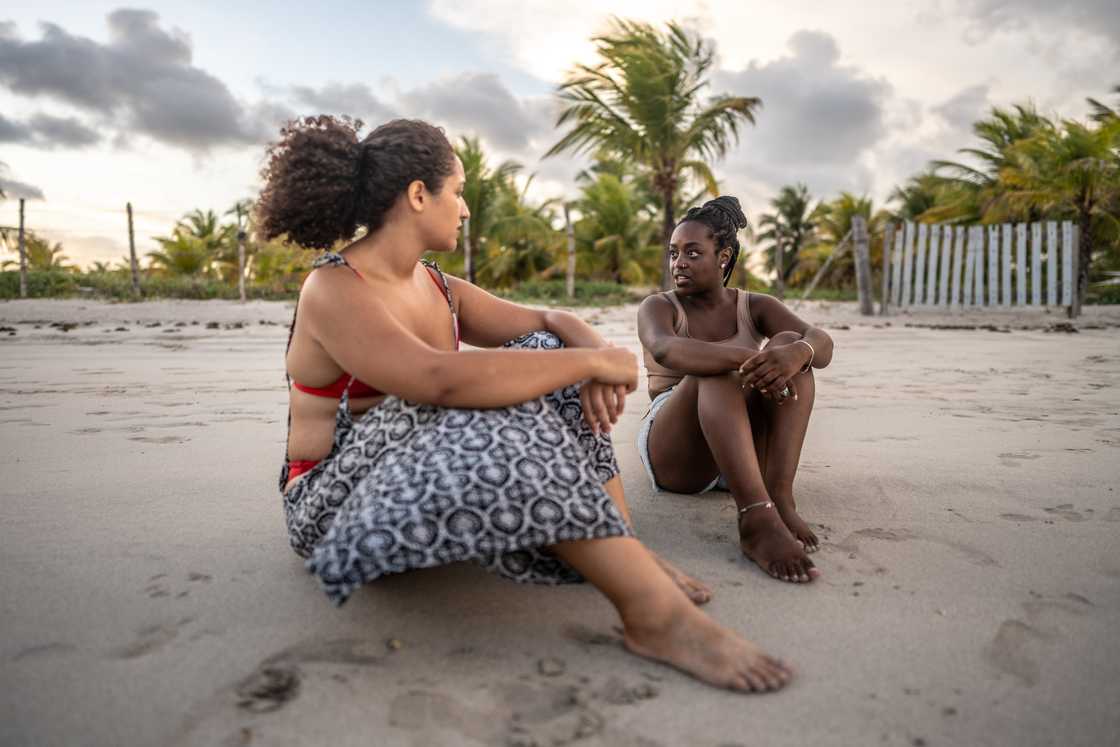
She nodded, with tears streaming down her face. "I don't deserve your forgiveness, but I want to set things right. I no longer wish to benefit from others' suffering."
That day, we spent hours talking — on topics like friendship, fear, and the negative aspects of seeking approval. It was the first time in more than a year that we were completely honest with each other. Although there were extended silences, none felt uncomfortable. Instead, they were comforting.
Prior to our departure, I remarked, "If we're ever going to be part of each other's lives again, it needs to change. Boundaries, Yvonne. Genuine ones."
She consented. "No more exploiting people as narratives," she vowed. "Going forward, I'll share my own truth—nothing but my own."
Faithful to her promise, when she came back to social media a few weeks later, everything was different.
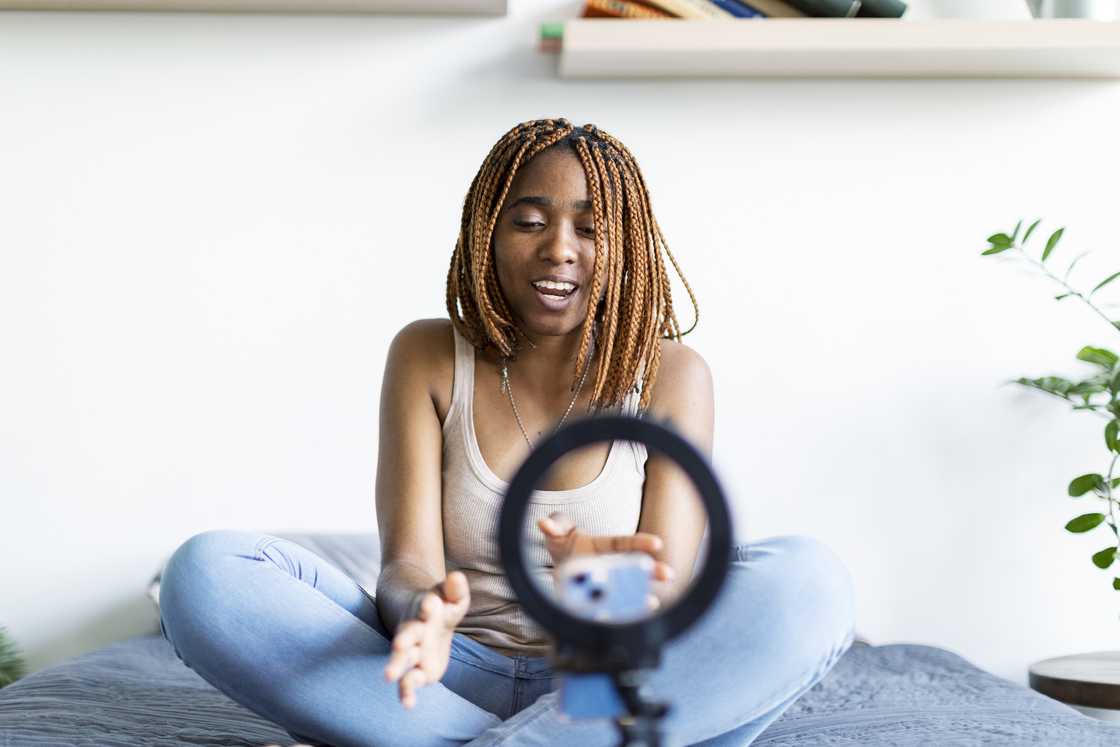
Her posts were honest and open. She discussed her exhaustion, her therapy visits, and the errors she had committed. She publicly acknowledged that she had harmed a friend while striving for perfection — not mentioning me directly — and shared her journey of restoring trust.
Interestingly, her followers did not depart. Instead, they increased. Individuals overwhelmed her page with affection, expressing gratitude for her honesty. Companies that previously pursued polished perfection now valued genuine content. Her new slogan was "Authenticity over flawlessness."
Occasionally, I would browse her updates and grin. Not because I longed for our past relationship, but because I admired the person she was transforming into.
We still communicate — not daily, but often enough. The friendship is not the same as before, but perhaps that's fine. Certain things aren't meant to return to their previous state. Instead, they are meant to evolve into something different.
Reflecting on the past, I now understand that not every act of betrayal stems from hatred. Some arise from fear—fear of going unnoticed, unloved, or being left behind.
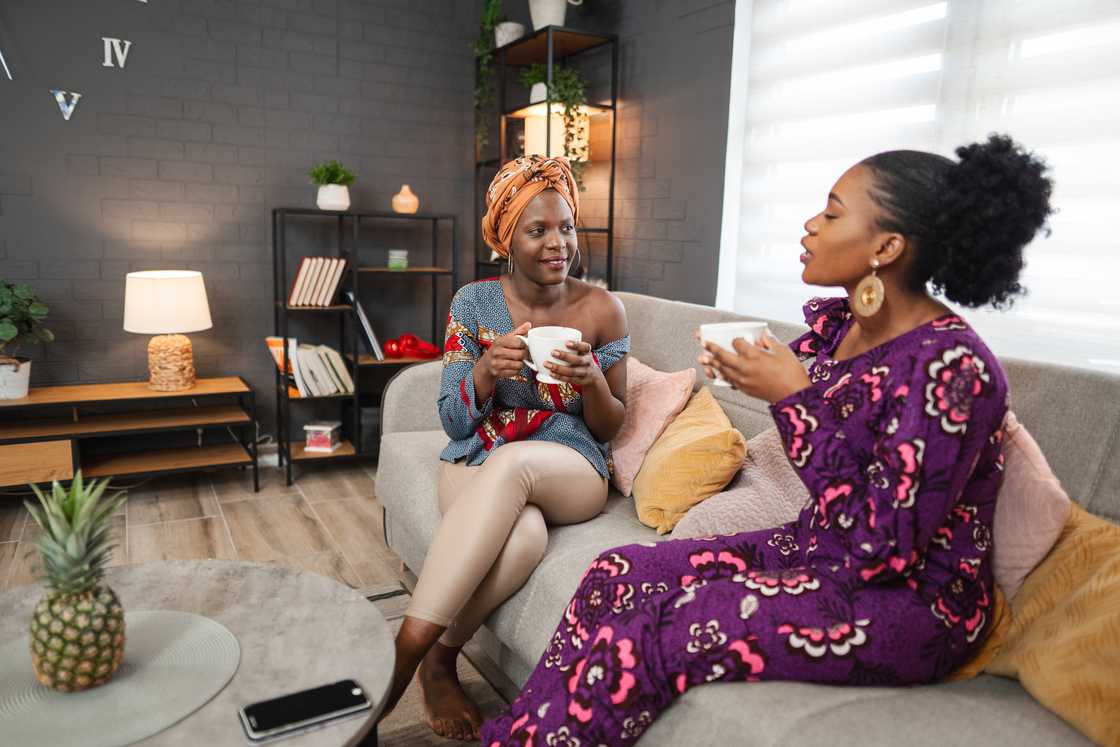
Yvonne didn't destroy our friendship because she disliked me. She did so because she lacked a sense of identity without someone to measure herself against.
Perhaps, in my silence, I let her shape my identity rather than speaking out earlier.
Recovery was not immediate. Neither was the act of forgiving. However, being across from her that day on the beach showed me a significant lesson — finality does not always arrive with a grand conclusion.
At times, it emerges as a gentle realization that both of you were simply human, doing your best using the methods you understood.
I discovered that limits are not barriers; they are entry points where you choose who may enter.
Now, every time someone reveals a part of my life, I question myself, Did I allow them to possess that part?
If the response is negative, I will keep it secure inside me. As I have witnessed what occurs when stories intended for recovery are transformed into material for consumption.
So if you ever end up in a friendship that begins to seem like an act — take a step back and question,Are we still in touch, or are we simply collecting?
That question helped me. It has the potential to assist someone else as well.
This narrative is based on the genuine experiences of our readers. We feel that each story holds a valuable lesson that can illuminate the path for others. In order to maintain everyone's confidentiality, our editors might alter names, places, and some specifics while preserving the essence of the story. The pictures are for visual purposes only. If you wish to share your own tale, kindly reach out to us by email.



